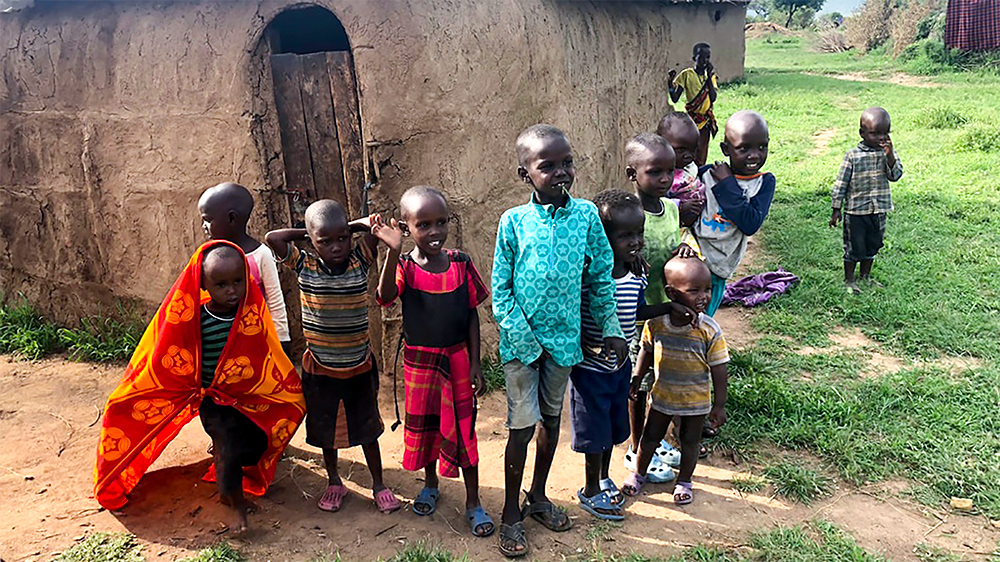Kent Kast led a group including five Campion students and more than 30 others on a mission trip of a lifetime to Nairobi, Kenya, June 20 to July 2. Their primary purpose was to complete the walls on the second floor of Imara Daima Adventist School, located in a poor neighborhood in Nairobi. As the walls were built, workers lives were changed.
About 700 students attend the school, and around 40 students must fit into each small classroom. “The school already had three floors, but the walls had been made of just sticks and tin,” commented Kast. “This is the typical building material in this area if one cannot afford cement or bricks.”
After the first few days, the group discovered they needed to leave each morning by 4 am to avoid the heavy traffic as they crossed the city to their worksite. They worked for nine days laying block and cementing the walls until they completed all of the walls on the second floor.
Although the school’s students were on summer break, one of the highlights of the trip was getting to visit with the local people, including the teachers and several parents who came to work alongside the group each day. “The local people were very friendly and helpful. They weren’t there to just watch us work,” explained Kast. “They were very interested in making their school a better place, and they were also very interested in getting to know us. They loved to talk and tell us about their families. Some took us to their homes nearby to show us where they lived. Many of the houses there had under 200 square feet of living space.”
Ryan Brown, a Campion Academy student on the trip, felt good about the work they did because it would help more than 700 students. He mentioned, “The most meaningful part of the trip was seeing how other people lived. It made me appreciate my life in America and realize how lucky we are.”
In addition to the construction work, a doctor and two dentists in the group offered free medical and dental care to the people in the neighborhood of the school. These clinics were a large draw for the local people and allowed the group to have greater interactions with the people there.
The local Campion community was able to bless the Kenyans through donations Kast collected before leaving. “HMS donated the entire grade school Bible curriculum that they were replacing and the school was very happy to receive the textbooks. The students have to buy their own textbooks, so they often will share due to lack of money,” Kast commented. “We also took several suitcases of donated clothing with us. This was put in one of the classrooms to be given to the people of the community as they need it.”
“I believe the best part of these trips is meeting the people,” said Kast. “The relationships we made with our new friends are genuine. When we leave, there are always tears shed. When we visit other countries and cultures, it helps us put a face on what we see only in magazines and on TV. Often, we have preconceived ideas of what a place will be like or what people believe and do. It is when we can say we have friends that are Kenyan that we can truly say we understand a little about them and their way of life. It also removes much of the fear we may have of an area due to our lack of knowledge. Hopefully we all represented God and our home country well.”
The group stayed in guest rooms on the well-manicured campus of the East Kenya Union Conference, which also includes a church and medical clinic. While working took up the majority of the time in Nairobi, the group enjoyed attending Sabbath services at the local church, going out to eat at a nice restaurant, and especially having the opportunity to feed giraffes at a local park.
When the work was completed, most of the group went to Masai Mara National Reserve in southwestern Kenya to have a chance to see lions, elephants, and other African animals. “Africa is not all covered with lions and elephants,” Kast clarified. “They mainly reside in parks where they are protected.” The Maasai nomadic people also reside in this area, and while many have settled into permanent villages, some still roam the vast Serengeti, following the wildlife. “Visiting the Maasai village was as much a hit as seeing the animals,” added Kast.










